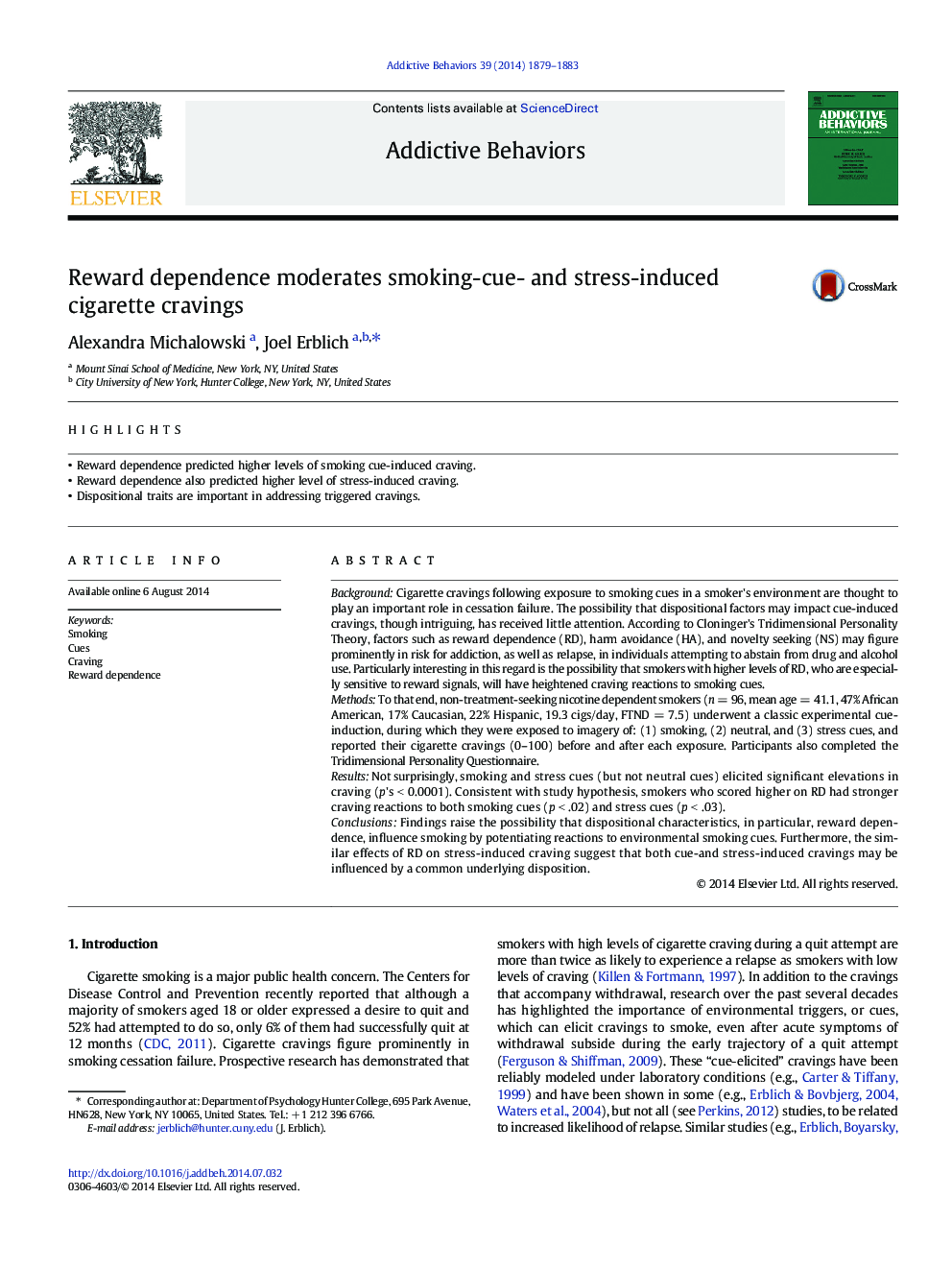| Article ID | Journal | Published Year | Pages | File Type |
|---|---|---|---|---|
| 898783 | Addictive Behaviors | 2014 | 5 Pages |
•Reward dependence predicted higher levels of smoking cue-induced craving.•Reward dependence also predicted higher level of stress-induced craving.•Dispositional traits are important in addressing triggered cravings.
BackgroundCigarette cravings following exposure to smoking cues in a smoker's environment are thought to play an important role in cessation failure. The possibility that dispositional factors may impact cue-induced cravings, though intriguing, has received little attention. According to Cloninger's Tridimensional Personality Theory, factors such as reward dependence (RD), harm avoidance (HA), and novelty seeking (NS) may figure prominently in risk for addiction, as well as relapse, in individuals attempting to abstain from drug and alcohol use. Particularly interesting in this regard is the possibility that smokers with higher levels of RD, who are especially sensitive to reward signals, will have heightened craving reactions to smoking cues.MethodsTo that end, non-treatment-seeking nicotine dependent smokers (n = 96, mean age = 41.1, 47% African American, 17% Caucasian, 22% Hispanic, 19.3 cigs/day, FTND = 7.5) underwent a classic experimental cue-induction, during which they were exposed to imagery of: (1) smoking, (2) neutral, and (3) stress cues, and reported their cigarette cravings (0–100) before and after each exposure. Participants also completed the Tridimensional Personality Questionnaire.ResultsNot surprisingly, smoking and stress cues (but not neutral cues) elicited significant elevations in craving (p's < 0.0001). Consistent with study hypothesis, smokers who scored higher on RD had stronger craving reactions to both smoking cues (p < .02) and stress cues (p < .03).ConclusionsFindings raise the possibility that dispositional characteristics, in particular, reward dependence, influence smoking by potentiating reactions to environmental smoking cues. Furthermore, the similar effects of RD on stress-induced craving suggest that both cue-and stress-induced cravings may be influenced by a common underlying disposition.
